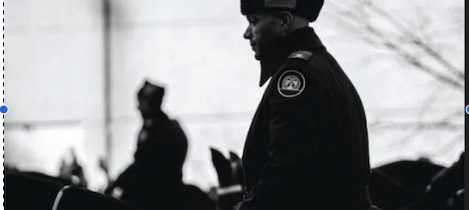IOD Part Two
I believe Part 2 of Isle of Dogs is winding its way through the digestive track of Whiskey Tit. I don’t have a pub date yet. In the meantime here is a taste of the first chapter (Chapter 11, appropriately, of the entire book):
Several weeks after the UN Massacre, Ruth headed to Doc Hughes’ office through Hommock’s Cottage’s bedrock tunnels, the faint smell of decaying antivirals in the air. Doc Hughes was possibly going to implant her with the Ruler Renee’s clone.
As a child, she had explored Hommock’s Cottage’s damp basement chambers and crawl spaces. But the New Tunnels, as they were known, were forbidden to her. Now she found herself standing before a six-inch-thick steel door with a sign that said Medical Chambers. The door slipped into place behind her. Immediately her eyes swam. The glass walls, floors, and ceilings were molded into the contours of a cave, built up of opaque and translucent tiles that refracted and texturized the light, so where one thing began and another ended was unclear. Signs—white letters on black rectangles—were drilled into the walls.
Hommocks Cottage was in the midst of being transformed from a rambling summer mansion with a blue roof on Long Island Sound to a state security zone. Hovercraft flew in and out hourly. An armada of navy vessels cruised the harbor, installing sensors and mines. The nanodome was expanding, trapping every particle of the living in its web. And Air Force One was sitting on the lawn below the eyebrow window.
Doc Hughes’ Hommocks office was newer and more pristine than the one in the Winter Palace where he preferred to work, but he could, in a pinch, implant her anywhere. He joked that once an embryo was fully designed and tested he could implant it in the back seat of a car if necessary. She tried to visualize what that would entail. It would mean raising her legs and holding them back with her arms while he crouched down on the seat before her, staring at her vagina in the dark, speculum and catheter in hand. He didn’t need ultrasound, he had the touch. No cervix was too labyrinthian for him to thread; he was the Theseus of IVF docs.
Ruth did not want to bear the Ruler Renee’s clone. She worried the embryo would be a dark, frigid weight, pushing at her bowels. It would have Her Lady’s brutal, marmoreal beauty. She wondered if women ever wanted to kill the babies inside of them. Did their bodies ever attack them like alien pathogens? She had heard of fetal rejection. One of the Big Scares, of the many. But her births went well; they were good births. She was strong and her womb was ripe. That phrase repulsed her. It made her feel like a sac. Thoughts raced around her head. Her sense of abandonment, of being gut-punched by life, became acute. Renee. Cold, formal Renee.
There had been awkward gestures over the years. Sometimes Renee would find Ruth strolling alone among the peonies and roses of the side garden, where they both liked to walk in high spring, when the air was sweet with the scent of unfolding petals covered with ants, and crimson rosebuds breaking on long, arched canes. Renee would smile at her and Ruth, unsettled, wouldn’t know if it was a real smile or a trap.
Renee’s expression was a lock without a key. She would return the smile, preferring silence, and fall back upon a childish preoccupation with bugs, examining the ants milling busily over the peony buds… Sometimes Renee broke the silence, and even Ruth could read the uncertainty on her lips and the tentative crack in her voice as she said hello.
Then there was that time Renee walked with her under the wisteria, which hung down from the pergola like bunches of grapes, and told her that her father was dead. Ruth tried to remember her Papa’s face but couldn’t. She ran away and Renee followed her, behind the high stone wall, to the woodland garden, shaded by a massive paper birch with a rope swing. Ignoring her, Ruth grabbed the rough hemp rope and stood up on the knot at the bottom, swinging in slow arcs over the dense ivy. She squeezed her eyes shut and tried to imagine her mother and their rooms at home. All she could see were the halls of mansions. What place was hers? Who was her father? He was a forester. He managed an estate in Transylvania. None of these facts was a picture, or a smell. She could smell her mother’s apron, and her skin, like laundry and lilacs, but her father was a blank.
Papa, she thought. No face came but a pair of muddy boots and an old rifle and a burlap sack. A brace of quail and pheasants hung across his shoulders. But that wasn’t him at all. It was the hunter on an antique Black Forest clock in the Time Room at Hommocks Cottage. Out and up she swung, the air still and heavy and hot, humming with the buzz of bees and wasps swarming over the flowering English ivy that smothered the garden walls.
Ruth didn’t want to cry but she felt she must. She summoned a lump to her throat and waited for tears to break, but they would not. She couldn’t weep for nothing, and wouldn’t pretend. Renee stood by the tree waiting, and Ruth was afraid. She opened her eyes and let the swing slow to a stop. She leapt off and said, “I have no father,†and then Renee touched Ruth’s forehead. Her hand was warm. She was surprised. They were usually ice cold and so white. In Hungary, people weren’t as white as that. Renee said, “Neither do I.â€




